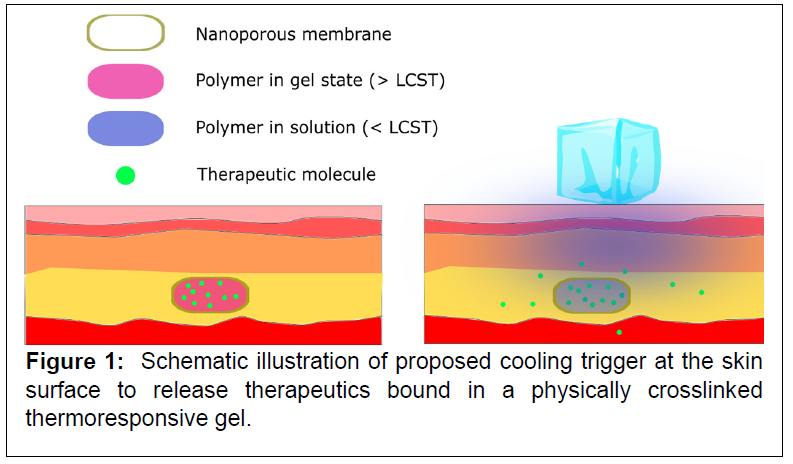Description:
Addressed Need
Local drug delivery has emerged as a promising strategy for pain management, cancer treatment, and more. Conventional drug therapies enter systemic circulation which is susceptible to off-target effects and rapid elimination from the body. Even more concerning, clinicians are seeking pain management alternatives to narcotics in light of the ongoing opioid crisis. Local drug delivery avoids these pitfalls by bypassing systemic circulation altogether, and instead, the anesthetic or cancer therapeutic is administered directly at the target site. Vanderbilt researchers have created a cooling-responsive gel implant that meets this need for non-invasive local delivery and is simple to activate, requiring only an ice pack for some applications, eliminating complex clinical equipment.
Technology Description
Therapeutics are embedded in a thermoresponsive polymer gel and remain sequestered while the temperature is maintained above a critical value, also referred to as the lower critical solution temperature (LCST). Above this temperature, the gel is insoluble but
quickly becomes soluble when the temperature is lowered below the LCST. The cooling-triggered gel to solution transition enables the controlled release of compounds embedded within the gel, allowing them to interact with the local environment without destroying the outer membrane structure. The reusable nature of the implant allows for on-off release of therapeutics. Both the polymer structure and degree of cooling can be modulated to tailor the design to specific applications.
Commercial Applications
• Local delivery of anesthetics for pain management
• Local delivery of cancer therapeutics
• Industrial applications where system temperatures are not suitable for heat-triggered materials
Technology Development Status
Preliminary testing has proven the concept. Additional testing and refinement of the technology is ongoing.
Intellectual Property Status
US patent application filed: US 20200113816
